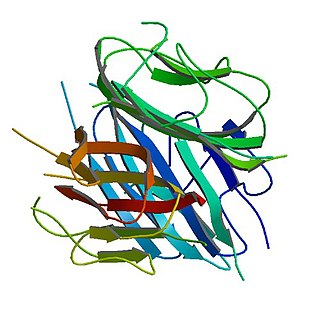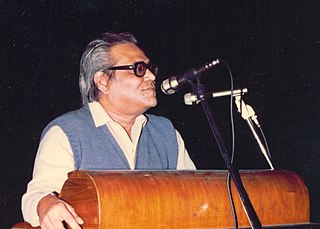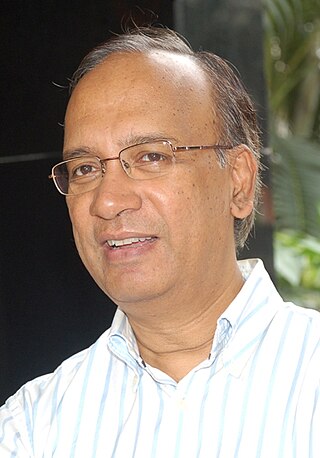
Sir Jagadish Chandra Bose (;, IPA: [dʒɔɡodiʃ tʃɔndro boʃu]; 30 November 1858 – 23 November 1937) was a Polymath with interests in biology, physics, botany and writing science fiction. He was a pioneer in the investigation of radio microwave optics, made significant contributions to botany, and was a major force behind the expansion of experimental science on the Indian subcontinent. Bose is considered the father of Bengali science fiction. He invented the crescograph, a device for measuring the growth of plants. A crater on the moon was named in his honour. He founded Bose Institute, a premier research institute in India and also one of its oldest. Established in 1917, the institute was the first interdisciplinary research centre in Asia. He served as the Director of Bose Institute from its inception until his death.

The University of Calcutta is a public collegiate state research university located in Kolkata, West Bengal, India. Considered one of the best state research universities in India every year, CU has topped among India's best universities several times. It has 151 affiliated undergraduate colleges and 16 institutes in Kolkata and nearby areas. It was established on 24 January 1857 and is the oldest multidisciplinary and European-style institution in Asia. Today, the university's jurisdiction is limited to a few districts of West Bengal, but at the time of establishment it had a catchment area ranging from Lahore to Myanmar. Within India, it is recognized as a "Five-Star University" and accredited an "A+" grade by the National Assessment and Accreditation Council (NAAC). The University of Calcutta was awarded the status of "Centre with Potential for Excellence in Particular Area" and "University with potential for excellence" by the University Grants Commission (UGC).

Adiponectin is a protein hormone and adipokine, which is involved in regulating glucose levels as well as fatty acid breakdown. In humans it is encoded by the ADIPOQ gene and it is produced primarily in adipose tissue, but also in muscle, and even in the brain.
Pabitra Kumar Sen was the Khaira Professor of Agriculture, Calcutta University, and founder of the College of Agriculture at Calcutta University in the 1950s.

Bose Institute is a public research institute of India and also one of its oldest. The Institute was established in 1917 by Acharya Sir Jagdish Chandra Bose, the father of modern scientific research in the Indian subcontinent. Bose was its Director for the first twenty years till his demise. Debendra Mohan Bose, who succeeded Nobel Laureate Sir CV Raman as Palit Professor of Physics at the University of Calcutta, was the Director of Bose Institute for the next thirty years. The Institute pioneered the concept of interdisciplinary research in Asia and India in sync with global trends.
Gopal Chandra Bhattacharya was an Indian entomologist and naturalist who spent most of his career at Bose Institute, Kolkata. He had no formal college degree. In 1981, the University of Calcutta awarded him an honorary Doctor of Science degree months before he died. He was awarded the Ananda Puraskar for Bengali literature in 1968, and the highest award for Bengali literature, the Rabindra Puraskar, in 1975.
Manju Ray was an Indian scientist specializing in Molecular Enzymology and Cancer Biochemistry. Her research has contributed significantly to the development of anticancer drugs and understanding the differentiation process of cells. Her interests include tumor biochemistry and molecular enzymology. She was awarded the Shanti Swarup Bhatnagar Prize for Science and Technology in the year 1989, being only the second woman to receive this award in the category 'Biological Sciences'.
Anuradha Lohia is an Indian molecular parasitologist who works in infectious disease. She is currently the Vice Chancellor of the Presidency University. She was earlier the Chairperson of the Department of Biochemistry in the Bose Institute in Kolkata. She was Chairperson of an Indo-British Wellcome Trust/ DBT India Alliance, an organization to promote medical research in India.

Dipankar Chatterji is an Indian molecular biologist and the Honorary Professor at Molecular Biophysics Unit, Indian Institute of Science, a multidisciplinary research institute under the Department of Science and Technology of the Government of India. He is known for his pioneering research on bacterial transcription. He is a recipient of Shanti Swarup Bhatnagar Prize and is an elected fellow of all the major Indian science academies. The Government of India awarded him the fourth highest civilian honour of the Padma Shri, in 2016, for his contributions to science and engineering.
Birendra Bijoy Biswas is an Indian molecular biologist, geneticist and a former director of Bose Institute, Calcutta. He is known for his contributions to the metabolism of nucleic acid and the regulation of protein synthesis in plant cells. He is an elected fellow of the Indian Academy of Sciences and the Indian National Science Academy. The Council of Scientific and Industrial Research, the apex agency of the Government of India for scientific research, awarded him the Shanti Swarup Bhatnagar Prize for Science and Technology, one of the highest Indian science awards, in 1972, for his contributions to biological sciences.

Amar Nath Bhaduri (1935–2003) was an Indian molecular enzymologist and chemical biologist, known for his studies on UDP-glucose 4-epimerase, a homodimeric epimerase found in cells and his work on Leishmania donovani, the protozoal pathogen for Kala-azar. He was the director of the Indian Institute of Chemical Biology (IICB), Kolkata and an elected fellow of the Indian National Science Academy and the Indian Academy of Sciences. The Council of Scientific and Industrial Research, the apex agency of the Government of India for scientific research, awarded him the Shanti Swarup Bhatnagar Prize for Science and Technology, one of the highest Indian science awards, in 1978, for his contributions to biological sciences.
Bhabatarak Bhattacharyya, popularly known as Bablu Bhattacharyya, is an Indian structural biologist, biochemist and academic, known for his studies on the colchicine-tubulin interaction. He is a former professor and the head of the department of biochemistry at the Bose Institute, Kolkata and an elected fellow of the Indian Academy of Sciences, Indian National Science Academy, National Academy of Sciences, India and The World Academy of Sciences. The Council of Scientific and Industrial Research, the apex agency of the Government of India for scientific research, awarded him the Shanti Swarup Bhatnagar Prize for Science and Technology, one of the highest Indian science awards, in 1988, for his contributions to biological sciences.

Siddhartha Roy is an Indian structural biologist, biophysicist, former director of the Indian Institute of Chemical Biology and the former director (officiating) of Bose Institute. Widely known for his studies on bacteriophage lambda and protein synthesis, he is an elected fellow of the Indian Academy of Sciences and the Indian National Science Academy. In 1999, the Council of Scientific and Industrial Research, the apex agency of the Government of India for scientific research, awarded him the Shanti Swarup Bhatnagar Prize for Science and Technology, for his contributions to Biological sciences.
Chinmoy Sankar Dey is an Indian molecular biologist and a professor at Kusuma School of Biological Sciences of the Indian Institute of Technology, Delhi. Known for his research on insulin resistance, Dey's is a J. C. Bose National Fellow of the Department of Science and Technology and an elected fellow of the National Academy of Sciences, India and the Indian National Science Academy. The Council of Scientific and Industrial Research, the apex agency of the Government of India for scientific research, awarded him the Shanti Swarup Bhatnagar Prize for Science and Technology, one of the highest Indian science awards for his contributions to Medical Sciences in 2003. He is also a recipient of the National Bioscience Award for Career Development of the Department of Biotechnology.
Joyoti Basu is an Indian biochemist, cell biologist and a senior professor at the Bose Institute. Known for her studies on the membrane structure of red blood cells, Basu is an elected fellow of all three major Indian science academies, namely the National Academy of Sciences, India, the Indian Academy of Sciences and the Indian National Science Academy, as well as the Indian Society for Chemical Biology. The Department of Biotechnology of the Government of India awarded her the National Bioscience Award for Career Development, one of the highest Indian science awards, for her contributions to biosciences in 2002.

The University College of Science, Technology and Agriculture are two of five main campuses of the University of Calcutta (CU). The college served as the cradle of Indian Sciences by winning the Nobel Prize in Physics in 1930 and many fellowships of the Royal Society London.







